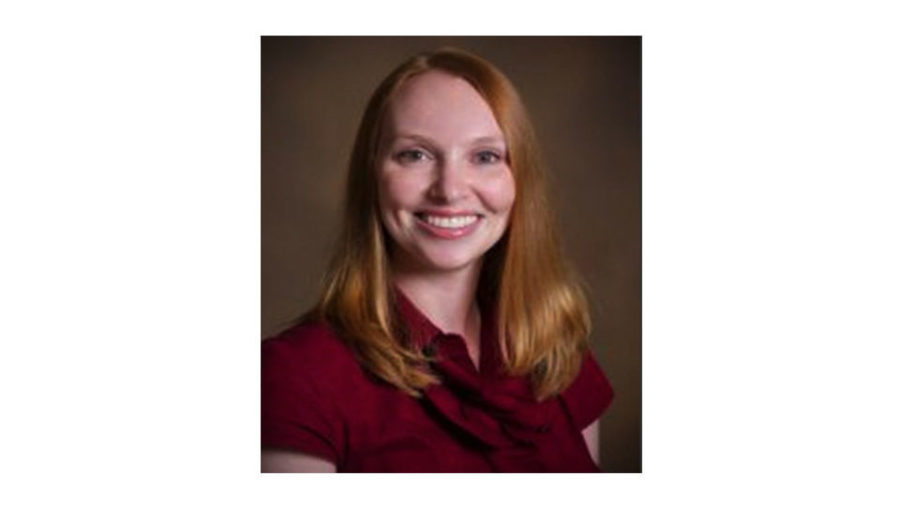Karen Kozlowski, assistant professor of sociology, presented a lecture titled “How Peer Groups Become Racially Segregated as Early as First Grade— And What That Means for Their Academics” on March 23.
The Department of Anthropology and Sociology hosted this lecture at The University of Southern Mississippi’s Hattiesburg campus.
According to the department’s event page, the presentation, “addressed how, even as early as first grade, students come to identify friends who are demographically similar to themselves and what consequences this might have on the academic achievement and skills development of different student groups.” The lecture is a part of Kozlowski’s dissertation “Doing School:” Learning Behavior, Classroom Interactions and the Racial Achievement Gap.”
In her research, Kozlowski observed two racially diverse schools in North Carolina. She found that first graders did not select their friends strictly because of race. However, the first graders bonded “with students on the basis of attributes that happen to be correlated with race and socioeconomic status. Two of those factors that seem to matter are academic skills and perception of being a misbehaving student.”
Keia McInnis, a Hattiesburg resident who attended the free event, said she was alarmed at Kozlowski’s quantitative findings.
“I’m shocked,” McInnis said. “When I was in first grade, I didn’t think I chose friends based on the grades I made, let alone race. Not to mention, I was really surprised to hear how some teachers profile students of color.”
In a simple statement, McInnis continued, “This really blew my mind.”
In addition, Kozlowski reported that students bonded with classmates who were their “academic equals”. Friendship groups were segregated by supplemental educational services, which refers to free extra academic help that is provided to students in subjects such as language arts and math.
“Teachers also reinforced the high-SES and low-SES divide in who was seen as smart by disproportionately calling on higher-SES students (most of whom were white),” Kozlowski said.
This is not the only instance where teachers played a role in subtle segregation. Friendship groups, as Kozlowski pointed out, are connected to race and ethnicity in regard to how teachers constructed who was a misbehaving student. Kozlowski, says that, on average, students of color and lower-SES students were disciplined more than their white counterparts— some of which had higher-SES scores.
“Teachers regularly reprimanded black students when they misbehaved relative to white students, which I think subtly shaped the perception of the students in class about what kind of students they were and what kind of students were like them.”
McInnis is taken aback by this, stating.
“You see it in the news – police officers profiling black people,” McInnis said. “I never thought it happened in a classroom – in first grade. They’re just kids.”
Kozlowski said there are clear socioeconomic disparities in academic skills among children, too.
“One of the ways I saw this happening was in how parents assisted their children with homework,” Kozlowski said.
There is a clear distinction between how higher-SES parents and lower- SES parents assist their children when it comes to homework, according to Kozlowski. While the higher-SES parents went through “a detailed step-by-step process” of how they aid their children with (math) homework, lower-SES parents were confused by the (math) problem.
“They would be less detailed in their assistance,” Kozlowski said. “This different kind of assistance produced in children different scripts for solving similar problems once they got to school, which seemed to affect their confidence and engagement with school, which affected how other children were drawn to them as friends.”
On a macro-level, Kozlowski said more equitable opportunity in the economy will particularly serve the most disadvantaged students.
At the school level, Kozlowski recommends educators to subject themselves to some scrutiny to avoid (unintended) prejudicial attitudes.
“At the school level, teachers and administrators need to be aware of the way their interactions or other aspects of their practice (maybe their curriculum or instructional style) might facilitate stereotypes or other unequal outcomes,” Kozlowski said.
Kozlowski is an Assistant Professor of Sociology. In 2016, she attained her Ph.D. at the University of North Carolina Chapel Hill.
Kozlowski’s research specializes in sociology of education–specifically, how and why socioeconomic status and race correspond to students’ educational experiences and outcomes. Her work examines explanations for the racial achievement gap, how diverse elementary school students learn how to become successful in school, how educational contexts shape students’ health and stress, how schools shape whether students identify and challenge perceived social injustice, and the impact of educational policies on communities and students.

























